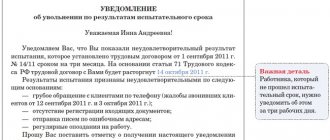Days at the request of the employee
The current version of the Labor Code of the Russian Federation provides only three reasons for which administrative leave can be granted. These include:
- Wedding, that is, the official registration of a legal marriage in the registry office.
- Death of a close relative, we recall that the circle of persons is defined in Art. 2 of the Family Code.
- The birth of a child is for both the father and the mother of the baby.
It is worth noting that in most cases, days without payment at the birth of a child are issued by new fathers. Since mothers are provided with paid maternity leave. The duration of the period is from 140 to 196 days.
However, the father of the child can also apply for maternity benefits. Consequently, a woman in labor may also require unpaid days. Such cases are extremely rare when the mother decides not to interrupt her work activity when the baby is born.
Legislative norms
Article 128 of the Labor Code of the Russian Federation establishes that any employee, regardless of position, length of employment and length of shift, has the right to administrative leave, the duration of which is determined in agreement with management.
Moreover, by virtue of the stipulated article, for some categories of workers administrative leave is provided as a benefit.
It should also be noted that in most cases the issue of granting administrative leave is resolved through agreement with management, who, depending on production needs and the progress of activities, may refuse to grant leave.
At the same time, in relation to beneficiaries, Article 128 of the Labor Code of the Russian Federation provides for broader powers, implying the registration of leave precisely at their request, without taking into account the opinion of management and the same need for presence at the enterprise for the purpose of executing an urgent order.
Day limit
If an employee asks to be provided with unpaid AO for the reasons listed above, then it is important to take into account that the period of these days is limited. Thus, administrative leave at the initiative of an employee - the maximum period - according to the Labor Code of the Russian Federation is 5 calendar days.
In other cases, the duration of unpaid absence from the workplace must be agreed upon with management. Please note that maximum as well as minimum values can be stipulated in a collective or employment agreement. In this case, when registering days without payment, you should be guided by the local regulations of the institution.
Legislators provide exceptions. Thus, for certain categories of citizens the duration has been increased:
- WWII participants - up to 35 days;
- age pensioners - up to 14 days;
- disabled people (any group and status) - up to 60 days;
- widows of military personnel, as well as parents of deceased military personnel - up to 14 days.
This duration of administrative leave cannot be reduced, even if instructions are specified in the employment contract. This is considered illegal. But you can divide the days into several parts. Transferring days from one calendar year to another is not permitted. That is, if a citizen did not take all the days allotted to him in one year, they cannot be transferred to subsequent periods.
If the AO period falls on a holiday, the duration does not increase. That is, holidays are included and do not extend the unpaid rest period.
It is also worth noting that if a working citizen has two grounds for receiving unpaid days in one calendar year, then in this case the time is not summed up. The vacation of the longest duration is provided. For example, a disabled person is an old-age pensioner, then instead of 74 days (60 - for disability and 14 - as an old-age pensioner), the employee can only claim 60 days.
However, there are exceptions. For example, a disabled person registers a marriage, in which case he is entitled to 65 days of unpaid rest, that is, 5 days cannot be included in other periods. We have compiled a sample application for administrative leave in 2020 for just such a case. For information on how to issue an order for vacation without pay, read the material “Instructions: drawing up an order for vacation without pay.”
In what cases is it required
From the first day of employment, any movement of a worker implies documentary recording. That is, every working day is reflected in the timesheet, just like a day off.
If an employee is sick, sick leave is issued; if he receives a certificate calling for a session, an order is created. Naturally, if an employee wishes to receive leave, even for a few days and without pay, due to the same family problems, an order is also issued.
And since in order to draw up an administrative document, which is what an order is, grounds are needed, the worker, on the eve of administrative leave, must write an application requesting a certain period of time without pay, indicating the reason or reference to a legislative act.
That is, regardless of whether the employee is a simple worker or a benefit recipient, a leave application is always drawn up and submitted for consideration by management.
Administrative leave at the initiative of the employer
The administrative vacation period is also called leave at your own expense. Both concepts imply no payment, that is, absolutely all days off that were provided to the employee will not be compensated by the employer.
Along with this feature, another one arises: despite the lack of payment, the workplace must be retained by the employee absolutely for the entire period of administrative leave.
The possibility of taking leave at your own expense is aimed, first of all, at protecting the interests of employees who have encountered certain problems that prevent them from visiting the workplace during a specific time period.
As has already become clear, in most cases, the initiative to go on administrative leave belongs entirely to the employees. However, in practice, sometimes there are exceptions in which the employer literally sends his employees on vacation at his own expense forcibly.
Registration procedure
Registration of time off without pay requires a certain procedure. The step-by-step procedure looks like this:
- The employee writes a statement addressed to the manager.
- Attaches certificates confirming a valid reason, which is counted as the basis for granting long time off at his own expense.
- The manager puts forward his resolution and notifies the employee about it.
- If a positive decision is made, an order is issued to grant time off without pay.
- The document is presented to the employee against signature.
- A corresponding note is made on his personal card.
- The employee's absence schedule is reflected in the working time sheet.
Application for administrative leave
The document is drawn up in written or printed form, in free form, with the obligatory reflection of the grounds for the need to obtain long-term leave at one’s own expense. It must be accompanied by a document confirming a valid reason. Sample example:
General Director of Stolitsa LLC A. B. Vorobyov
from support consultant G. D. Erokhin
Statement
I ask you to grant me unpaid leave without pay for 4 calendar days from 05/22/2018 to 05/25/2018 in connection with the birth of my son. A certificate from the Civil Registry Office is attached.
_________________ ____________________ ____________________ (date) (signature) (surname I.O.)
Supporting documents
Papers confirming that an employee asking for a long leave at his own expense has a valid reason can be certificates received from the department of the civil registry office (hereinafter referred to as the registry office), and/or copies thereof. These include:
- marriage certificate;
- death certificate;
- child's birth certificate.
Manager's order for leave at his own expense
To draw up an order, personnel officers use the unified form No. T-6, approved by Decree of the Federal State Statistics Service dated January 5, 2004 No. 1. The document must be signed by the first person of the organization, presented against signature to the subordinate for review and contain the following data:
- serial and personnel numbers, date of document preparation;
- name – order on administrative leave;
- position and full name of the employee;
- duration of leave, its start and end dates;
- reasons and grounds (employee statement) for provision.
Accounting notes in a personal card and time sheet
When going on administrative leave, a mark is placed in section VIII of the employee’s personal card. It must contain information about the duration of the leave, the start and end dates, the basis - the data of the order, its number and date, month and year of issue. To reflect rest at your own expense in time sheets according to unified forms No. T-12 or No. T-13, the personnel officer uses letter designations for coding:
- DO – long leave without pay;
- UD – administrative leave related to employee training;
- OZ - rest without pay for other cases provided for by law.
Level of legality of administrative leave on the part of the employer
As mentioned above, leave at your own expense has one main feature - it is not paid, unlike regular leaves, which are provided to each employee annually.
If the employee himself wishes to receive administrative leave, he must have substantial grounds for this. Some of them are prescribed in the current provisions of the Labor Code of the Russian Federation. These include:
- death of a close relative;
- birth of a child;
- own wedding.
It is the three above circumstances that imply that the employer will be obliged to meet the employee halfway and provide him with administrative leave in accordance with the written request.
Leave at one's own expense can also be granted for other reasons, but here the last word will be with the employer, who will make his decision after considering the current situation and the information provided by the employee.
In addition to such criteria as certain circumstances indicated above, leave may be mandatory for certain categories of employees. These include disabled people, working pensioners, close relatives of military personnel killed in the line of duty, etc.
The exact list of grounds for granting administrative leave, as well as categories of employees, can be expanded at the request of the employer. However, this fact must be recorded in the provisions of the internal collective agreement or in other company documents.
In all of the above situations, the employer plays only the role of an executor, while the main initiative to apply for administrative leave belongs entirely to the employee.
But sometimes it also happens that the employer himself, for some reason, offers the employee to go on unpaid leave for a certain period of time. There are also situations in which the manager literally forces the employee to write a statement at his own expense or even sends him on vacation without any documentary justification.
You should always remember that such actions by a manager constitute a gross violation of existing norms and established procedures in the field of labor relations.
What to do if the employer refuses to dismiss you
It is important to understand that the law does not have a clear requirement to provide an employee with leave followed by dismissal. Upon written request of the employee, unused vacations may be granted to him with subsequent dismissal (except for cases of dismissal for guilty actions)
In this case, the day of dismissal is considered the last day of vacation
Upon written request from the employee, unused vacations may be granted to him with subsequent dismissal (except for cases of dismissal for guilty actions). In this case, the day of dismissal is considered to be the last day of vacation.
Labor Code of the Russian Federation Article 127. Exercise of the right to leave upon dismissal of an employee
https://www.consultant.ru/document/cons_doc_LAW_34683/2f173da324a5464ef649b88f7347b8a17d200dae/
In other words, an employee who is fired for performance lapses cannot claim pre-dismissal leave. In the event of a separation on good terms, the provision or non-provision of leave to the employee before leaving the company is left to the employer. Formally, the employer has the right to refuse to provide such leave if the leave does not coincide with the pre-planned leave schedule. The employer still has no power to refuse dismissal. In such circumstances, the person resigning is paid monetary compensation for each day of vacation not taken, and dismissal (in the standard case and in the absence of other agreements) occurs fourteen days after submitting a letter of resignation. If the vacation requested before leaving corresponds to the pre-approved vacation schedule, the employer should not refuse such leave, since compliance with the vacation schedule is mandatory for both the employee and the employer. In such circumstances, the last day of work in the work book is marked as the last day of vacation. However, practice shows that many lawyers and personnel officers are afraid to refuse to grant employees leave before dismissal, even if this leave does not correspond to the company’s leave plan. This situation is caused by the fact that the law does not spell out in detail the procedure for refusing an employee in this case.
According to the letter of the law, no employer has the right to forcibly detain an employee against his will. The legislation guarantees that any person can calmly and freely change his place of work at will. Neither relationships with the team, nor obligations to the company, nor the scale of the position held, nor any other reasons can serve as a basis for refusing voluntary dismissal. If the employer refuses to sign the resignation letter, it is recommended to prepare ways for safe dismissal. First of all, it is necessary to send the completed application by registered mail with a list of the attachments and with a notification of delivery to the head of the company personally. From this moment on, the employer will be considered to have been promptly notified of the subordinate’s intention to part with the company. Having completed such simple steps, the employee, if necessary, will be able to prove in court proceedings that the employer was properly notified of the upcoming dismissal after the vacation. Another way is to submit an application for resignation to the office and receive a note on a copy of this application stating that the application was accepted on such and such a date and under such and such a number.
Legal grounds for applying for administrative leave at the initiative of the manager
As current practice shows, most often employers decide to send an employee on administrative leave due to simple savings. Everything here is quite simple - for the period that the employee is absent from his workplace, he will not be paid wages. Such actions are very popular in cases where organizations are faced with serious financial difficulties that require rapid adoption of optimal decisions to correct the situation.
Another very common reason is the lack of demand for the work skills of a certain employee. For example, an employee works at a company as a packer. Suddenly, production stops for a period of time. It is quite understandable that the employer will not want to pay wages for this period, because the employee did not actually fulfill his professional duties. However, such actions of the employer will be considered absolutely unlawful. Current labor standards state that the absence of work itself, or the suspension of activity, should not serve as a reason for the cancellation of regular wages. After all, even during the period of suspension of activities, a citizen is still a full-fledged employee of the enterprise, which means that he has the right to claim absolutely all benefits and privileges due.
Registration of administrative leave at absolutely any enterprise or organization will be legal only if the employee himself has the desire to do so.
If the employer forced the employee to write a corresponding application for administrative leave, indicating reasons such as, for example, “financial difficulties of the organization,” etc., such a document will be considered absolutely unlawful.
Any inspection will reveal these violations and record them. It is this fact that will be the main basis for the subsequent imposition of fines or the establishment of other, more serious measures of responsibility in relation to the guilty person.
conclusions
If necessary, the employee can apply for additional days off as vacation. In this case, several scenarios are possible.
Time off can be used in advance - subsequently the citizen is obliged to work the weekend in full. They can also be issued against the remaining vacation time. In this case, there is no need to work off time off. In any situation, days off must be arranged in accordance with established rules.
Labor legislation regulates the procedure for providing workers with days off and vacations.
If it happens that a person needs an additional day off during working hours, then such a day is called time off. Such a day off can be provided only with prior agreement and permission from management.
Application for administrative leave: sample
In this case, the employer will be obliged to pay compensation in the amount of no less than 2/3 of the average salary established for a particular employee.
To receive the above payments, you will also need special confirmation of the fact that the employee, despite the absence of work, was still present at his workplace. Such evidence may be a time sheet, which records all the movements of employees every day, as well as their arrival and departure from work.
As for the maximum duration of administrative leave, the legislation does not establish any strict framework or criteria. If we are talking about downtime at work, then the vacation period will most likely coincide with the time during which all necessary actions will be carried out. For example, if the downtime is due to a breakdown, leave can be taken for the period of equipment repair, etc.
What responsibilities can a manager have?
Forced placement on administrative leave will be regarded as a fairly gross violation of current regulations and legal rights of the employee. This means that a proven violation will entail a fair punishment. The perpetrator may face the following measures:
- Establishing a monetary fine, the exact amount of which will depend on various additional circumstances.
- Removal of the responsible person from office. Most often, this measure is applied if the employer has previously had certain violations of current labor law standards.
It is also impossible not to mention situations in which employees themselves write an application for administrative leave at the request of the employer. Most often, they do not realize the significance of their own actions and believe that the manager will still compensate them for the time they are on vacation.
Such violations are very easily and quickly identified by any authorized bodies conducting an inspection of the activities of an enterprise or organization. At the same time, the main feature can be immediately clearly visible here - mass participation. For example, if applications for administrative leave were received at one time from a large number of employees, it immediately becomes clear that this was done under the compulsion of the employer.
That is why, when faced with such cases, when an employer tries to force an application for administrative leave to be drawn up, one should not agree with such violations. It is necessary to protect your rights as soon as possible by contacting the labor commission or the court.
Employers, in turn, should always remember that sometimes the desire to save money and improve the financial situation of the company by sending employees on unpaid leave can result in much more serious consequences and much larger financial expenses.
According to the Labor Code of the Russian Federation, the length of service that gives the right to annual basic paid leave includes, among other things, the time of unpaid leave provided at the request of the employee, not exceeding 14 calendar days during the working year. Accordingly, the number of days exceeding 14 calendar days is not included in the length of service giving the right to annual paid leave. According to Article 9 of the Law “On Compulsory Social Insurance in Case of Temporary Disability and in Connection with Maternity”, temporary disability benefits are not assigned to the insured person for the period the employee is released from work with full or partial retention of wages or without payment in accordance with the legislation of the Russian Federation, with the exception of cases of loss of ability by the employee due to illness or injury during the period of annual paid leave.
How to write an application correctly
An application for administrative leave does not provide for a single specific form when writing the text. But all official documents drawn up in the form of appeals must be structured as competent, business correspondence.
You can draw up an application yourself or entrust it to someone with experience. This is done according to the following rules:
At the top of the page in the right corner the addressee is indicated, that is, to whom the appeal is sent. The initials and position of the superior should be noted. The details of the applicant are entered below: initials and position. If the company is large, it is necessary to indicate the department in which the applicant works. In the center of the page is written “Statement”. Further, any form is allowed. The number of specific days required for the break is indicated. You can only enter a specific date from which the joint venture will begin. In this case, you should write for what period the rest is calculated. A detailed description of the reason for leaving and its specific justification is required. It is not recommended to specify general reasons, for example, “for family reasons.” Because of this wording, the employer may refuse. Therefore, it is better to provide details about the reason for the requested days. If you have documents that officially prove the stated reasons, you need to make copies of them and attach them to the application
It is important to mention the available attachments in the text of the petition. In the bottom left corner, put the date of the application. Opposite to the right is the signature and its decoding
That is, the employee’s surname and initials are written in parentheses in clear handwriting. A request for administrative leave may be submitted either in handwritten or printed form. There are no special requirements for the form and ink color. But if the company has company sheets, it is recommended to write the application on a similar page.
The text of the statement refers to the official. After reviewing it, the employer makes a decision. Some people sign the document right away. If all the arguments in it are clear. In other cases, the employer may call the subordinate for a conversation, during which all the nuances of the upcoming time off are discussed.
The decision to grant (or refuse) a joint stock company is made in an official manner. A separate document is drawn up - an order to grant administrative leave. The enterprise may have an officially developed order form, or the employer may use a unified one - No. T-6.
The order from the superiors is given to the employee. After reading the document, the subordinate signs it.
How many days a year can you take vacation at your own expense?
The Labor Code of the Russian Federation does not limit the number of leaves granted without pay (without pay) and their duration. The period of such leave is determined by agreement with the employer.
As a general rule, the employer has the right to provide such leave at the request of the employee, but is not obliged.
Thus, in accordance with Article 128 of the Labor Code of the Russian Federation, for family reasons and other valid reasons, an employee, upon his written application, may be granted leave without pay, the duration of which is determined by agreement between the employee and the employer.
This article also contains a list of employees to whom the employer is obliged to provide leave without pay.
Providing time off for previously worked time
Let us recall that Article 152 of the Labor Code clearly states that time off for previously worked time is provided only in the following cases:
- work outside working hours;
- performing work on holidays or weekends;
- calling to work an employee who is on vacation.
If an employee needs time off, but does not have the above circumstances, then in order to receive it, he must submit a written application indicating other valid reasons. And in fact, this will no longer be a day off, but a short-term vacation, permission for which the manager can give based on his own understanding of the situation with each specific employee and his arguments in favor of the vacation.
The following are considered features of earned time off:
- it can be presented only after all the work specified in the order for overtime work has been completed. That is, if the work is completed, there is compensation; if the work is not completed, there is no compensation;
- an employee may request a cash payment as compensation for overtime work, but time off will also be legal and its duration is set by the employer based on obligations to employees, but not less than the time worked;
- The period for taking time off is two weeks. If the registration is not completed within this period, the employer may legally refuse time off. However, in this case it is worth thinking about the consequences in the form of a negative attitude of employees towards working overtime;
- do not forget that overtime work, and, accordingly, you cannot legally arrange time off for pregnant women, parents raising a child under 3 years old, minor workers, and disabled people for whom there are restrictions.
The personnel officer must understand that among the employees of the enterprise there are always either “fighters for the truth” or “quiet people” who can organize a confrontation if the employer refuses to satisfy the application for time off. This is especially true for unjustified refusal.
To defuse the situation, you should keep your finger on the pulse and discuss the situation with employees, explaining the management’s position (especially if the position is justified). However, you should understand the possible actions of workers:
- a preliminary discussion of the unresolved issue with time off with representatives of the administration must be understood correctly by the personnel officer;
- the next step for legally literate workers will be to submit written statements and this is a prerequisite for filing a complaint with supervisory authorities (labor inspectorate, prosecutor's office);
- the next step is going to court.
We recommend that all statements and appeals received in connection with the development of the situation be recorded in a journal with the signatures of those interested. This will help in case of further proceedings by supervisory authorities.
Important Do not pay attention to the identity of those who act as applicants. Even if these are your loved ones - in a narrow situation, everything can happen, so “nothing personal” - you are at work and fulfilling your functional duties
Failure to comply with them may result in fines for you personally, and possibly subsequent dismissal. Do you need it?
Providing time off for pre-worked time is not always available. An employee can receive such leave if he has overtime that was not paid, or worked on weekends and holidays. You can also issue an additional day of vacation to an employee for performing overtime work.
Overtime work refers to work that is performed after the end of the working day. For the first two hours of such work, the employee must be paid at least one and a half times more than during working hours. Subsequent overtime hours worked must be paid double. All these compensations must be specified in the employment contract. Also, the employee is entitled not only to monetary compensation, but also a day off in proportion to his pay, if he so desires.
On the payment account, it is important to note that money for rest for overtime work is accrued without any differences from a regular working day. Moreover, if an employee needs a day off, then the payment must be made twice as much.
We suggest you read: Is it possible to return a car to a car dealership within 14 days?
Therefore, in most cases, the employer accommodates the employee in providing time off, since it is extremely unprofitable for him to pay additional compensation.
An employee has the right to receive a day of rest for time worked in advance when it is convenient for him, while agreeing on the time with management, who in turn issues an order. Absenteeism from work without orders is considered absenteeism. The only exception is donation. At the same time, there are cases when the employer refuses to provide it, citing the fact that the time off period has expired. Whether there is an expiration date will be discussed further.
The labor legislation of the Russian Federation does not provide for the validity period of days off for overtime work. Accordingly, an employee can receive a day off by agreeing with his superiors. If the manager nevertheless refuses to provide a day off for the time worked in advance, then he must bear administrative responsibility in accordance with Article 5.27 of the Code of Administrative Offenses of the Russian Federation. In this situation, the employee can defend his rights in court.
List of sources
According to the Labor Code, the concept of “time off” is not legally approved. However, in colloquial speech this term is used in relation to a day off, which is granted to an employee of an organization for previously worked time or for other reasons.
If a company employee worked overtime, on a weekend or holiday, then at the required time the person has the right to take a day off to account for the time worked or receive monetary compensation.
In the event that an employee wishes to write a statement for family reasons on account of previously worked days, a document must be submitted to the manager for signature. Without writing a sample application, it is impossible to legally take time off, since a day off will be considered absenteeism.
Maximum duration of leave without pay
Attention
According to the labor legislation of the Russian Federation, leave without pay is referred to as “leave without pay.” It is usually provided to the employee on the basis of his written application, and its duration directly depends on the agreement reached with the employer.
The employer's responsibilities include providing unpaid leave to certain preferential categories of employees. For example, working pensioners, as well as the closest relatives of fallen military personnel, will be able to count on two weeks of additional rest.
Info
For working disabled people, leave without pay is provided for 60 calendar days. All other employees must agree on all details with the employer, who has every right to refuse their written application.
The time frame for leave at your own expense may be additionally stipulated in the collective agreement.
FAQ
Does temporary disability affect the duration of vacation?
In accordance with Article 124 of the Labor Code of the Russian Federation, leave granted to an employee must be postponed or extended due to illness, but this provision applies only to paid leave; administrative leave cannot be extended.
Are sick days that coincide with vacation paid?
Days of incapacity for work that coincide with days of leave without pay are not paid, as stated in Article 9 of Federal Law No. 255, but days of illness that fall after the end of administrative leave are subject to payment.
Federal_law_of_December_29_2006_N_255-ФЗ
That is, the day after the end of administrative leave, sick leave is already paid at the average rate, even if the onset of illness falls on the days of administrative leave, and the end of sick leave falls on working days.
Is it possible to recall an employee?
According to the norms presented in Article 125 of the Labor Code of the Russian Federation, an employee can be recalled from paid leave, but only with his consent, however, this norm does not apply to leave without pay.
Moreover, the labor legislation of the Russian Federation does not contain rules that would indicate that the employer has the right to recall an employee from leave, which for a number of reasons cannot be planned in advance and is provided at the request of the employee based on existing family circumstances.
Will it be carried over to next year?
Article 128 of the Labor Code of the Russian Federation, as well as a number of Federal laws of the Russian Federation, states that the manager is obliged to provide his employee with leave without pay at his request, but if the employee does not exercise his right to receive such leave during the year, the remaining days for another year are not are transferred.
Article 263 of the Labor Code of the Russian Federation states in this regard: transferring leave without pay to another year is not allowed.
Is a holiday postponed if it coincides with a day of rest?
In accordance with the norms of Article 120 of the Labor Code of the Russian Federation, holidays that coincide with the period of the next vacation are not included in the total duration, since vacation is calculated in calendar days.
But when providing leave without pay, holidays are not transferred, however, they are not included in the total duration of such leave.
That is, if an employee is granted administrative leave, for example, from November 1, 2014 to November 10, 2014, then, according to his application, the leave will be granted for 9 calendar days, taking into account the fact that November 4, 2014 is a holiday.
In such a situation, the holiday will be excluded from the total duration of leave without pay.
How to apply for parental leave? Read about it on our website.
Is it possible to quit while on vacation? Find out .
Is it possible to take a long leave without pay and work in another institution?
The Labor Code of the Russian Federation does not contain a ban on employment in several organizations, provided that as a part-time worker can be employed at no more than half the rate in the total, as stated in Art. 284 Labor Code of the Russian Federation.
The employee is also obliged to inform the new employer that his position is part-time, because in this case the tax fee is paid in a different amount.
But during a free vacation, you can conclude not only a new employment contract on performing work as an external part-time job, but also conclude a civil contract, which will allow you to extend the employee’s daily employment for a longer time, as well as increase the amount of payment for your work.
The peculiarity of a civil contract is that it is concluded to perform certain work for a fixed payment, without restrictions in the form of hourly employment of no more than half a day and wages of no more than 50% like part-time workers, which makes it more profitable in such conditions.
Of course, legislation cannot be called perfect, since it is not realistic to provide for all life situations even in all regulations and, nevertheless, the established norms already provide a guarantee that the rights and interests of workers are respected.
After all, administrative leave, even for a minimum period, is granted to an employee, precisely so that everyone can combine both work and solving personal problems.
What is the maximum period for which you can go on vacation at your own expense?
To the question of how long you can take vacation at your own expense according to the labor code, you can give the current answer - 14 days. This figure is not exhaustive; preferential categories can count on:
- WWII participants – 35 days.
- Disabled people – 60 days.
For all other categories, the law allows you to increase vacation time at your own discretion without pay, securing this right at the federal level or in the internal local documentation of organizations.
Important
Application for leave at his own expense - sample An employee can take the required number of days for his needs based on the application provided. The application does not have a form and can even be written by hand.
The Labor Code of the Russian Federation indicates one of the reasons for providing a period without preservation - family circumstances. More precise written wording is not needed.
Right or obligation{q}
Administrative leave is granted by agreement with the manager, but it must be understood that an employee may be refused this leave due to an unjustifiable reason in the opinion of the enterprise administration.
| Category of citizens | Duration of vacation |
| WWII participants | up to 35 calendar days every year |
| Pensioners by age | up to 14 days annually |
| Parents and spouses of military personnel, police officers, fire service officers, drug control services, customs officers, penitentiary systems, who died during the performance of duty or who died as a result of a disease arising in connection with their service | up to 14 days annually |
| Disabled people | up to 60 days annually |
| Birth of a child, marriage, death of loved ones | up to 5 days |
| Invalids of war | up to 60 days annually |
| Combat veterans | up to 35 days annually |
| Awarded the badge “Residents of besieged Leningrad” | up to 35 days annually |
| Heroes of Social Labor, Heroes of Labor of the Russian Federation, full holder of the Order of Labor Glory | up to three weeks annually |
| Obtaining higher professional education: | |
| Applicants | 15 days |
| Full-time students | · 15 days for intermediate certification · 4 months to prepare final work and pass state exams · 1 month for passing state exams |
| Obtaining secondary vocational education: | |
| Applicants | 10 days |
| Full-time students | · 10 days for intermediate certification; · up to 2 months – passing the state examination test |
| Part-timers | If the vacation at the main place of work is greater than at a part-time job, the number of days equalizing the duration of vacation is provided |
| Trustees | For the period of office |
| Military spouses | The amount of leave that equates leave at the main place of work with the leave of a military personnel |
| Member of the election commission | For the period of office |
| Parent (legal representative) of a child under 16 years of age working in the Far North and equivalent territories | 1 day per month |
| In accordance with the collective agreement: · parent (legal representative) of two or more children under 14 years of age · parent (legal representative) of a disabled child under 18 years of age · single mother/single father of a child under 14 years old | up to 14 calendar days |
Article 128 of the Labor Code of the Russian Federation establishes the rules for granting unpaid leave. According to this norm, this type of leave can be granted:
- by decision of the employer (the employer may grant leave or refuse);
- by force of law (the employer cannot refuse to provide an employee with leave).
Let's look at these two cases in detail.
Based on Part 1 of Art. 128 of the Labor Code of the Russian Federation, administrative leave may be granted for family reasons and other valid reasons. What reasons are considered valid{q} The legislation does not answer this question, leaving its decision to the discretion of the employer. In practice, employees ask for administrative information, for example, in connection with the completion of a transaction, the need to care for a sick family member, or divorce.
If the employer considers the reasons for the request for leave to be minor or disrespectful, he may refuse. Judicial practice also suggests that in the cases under consideration, granting leave without pay is possible only in agreement with the employer (see, for example, the Appeal ruling of the Sverdlovsk Regional Court dated 02/08/2017 in case No. 33-2423/2017).
So, granting unpaid leave is possible if there are simultaneously valid reasons, a written statement from the employee, and the consent of the employer. If the employer does not see the application or does not agree to provide leave, leaving work will be a violation of labor discipline. In this case, disciplinary measures may be taken against the employee, up to and including dismissal.
For example, an employer fired an employee who requested administrative leave without providing a reason. After the leave request was denied, it turned out that the leave was necessary due to the death of a close relative. However, the court recognized this dismissal as legal, since the employer did not consent to such leave, and the employee did not indicate a specific reason in the application (Appeal ruling of the St. Petersburg City Court dated July 12, 2017 No. 33-15787/2017 in case No. 2-297/2017 ).
Part 2 of Art. 128 of the Labor Code of the Russian Federation determines that the employer is obliged, on the basis of a written application from the employee, to provide leave without pay:
- WWII participants – up to 35 calendar days a year;
- for working old-age pensioners (by age) – up to 14 calendar days per year;
- parents and wives (husbands) of military personnel, employees of internal affairs bodies, the federal fire service, customs authorities, employees of institutions and bodies of the penal system, who died or died as a result of injury, concussion or injury received while performing the duties of military service (service), or due to an illness associated with military service (service) - up to 14 calendar days per year;
- for working disabled people – up to 60 calendar days per year;
- employees in cases of the birth of a child, marriage registration, death of close relatives - up to 5 calendar days.
1) employees admitted to entrance examinations - for 15 calendar days;
2) students of preparatory departments of educational organizations of higher education to pass the final certification - 15 calendar days;
3) persons studying in full-time bachelor's, specialist's or master's programs that have state accreditation, for passing intermediate certification - 15 calendar days per academic year, for preparing and defending a final qualifying thesis and passing final state exams - 4 months, for passing final state exams – 1 month.
In addition, Art. 263 of the Labor Code of the Russian Federation provides that a collective agreement may establish annual additional leaves without pay at a time convenient for them, lasting up to 14 calendar days:
We invite you to familiarize yourself with: Sample power of attorney to terminate the contract
- for employees with two or more children under 14 years of age;
- for employees with a disabled child under 18 years of age;
- for single mothers raising a child under 14 years of age;
- for fathers raising a child under 14 years of age without a mother.
Is an employer required to provide unpaid leave to an employee in connection with the funeral of an aunt{q}
Labor legislation does not explain who is a close relative. According to Art. 2 of the RF IC, spouses, parents and children are recognized as family members, and by virtue of Art. 14 of the RF IC, close relatives are considered to be parents and children, grandparents, grandchildren, full and half brothers and sisters. As you can see, the categories “family members” and “close relatives” overlap.
Is the employer obliged to provide administrative benefits to part-time employees{q}
By virtue of Art. 286 of the Labor Code of the Russian Federation, if in a part-time job the duration of the employee’s annual paid leave is less than the duration of leave at the main place of work, the employer, at the request of the employee, must provide him with leave of the corresponding duration without pay. If a part-time worker asks for leave for family reasons, the issue of granting it remains at the discretion of the employer.
The refusal to grant leave guaranteed by labor legislation and the subsequent disciplinary punishment of employees who went on such leave without the consent of the employer are recognized by the courts and regulatory authorities as unlawful. Thus, the employee was absent from work for several days due to the death of her grandmother.
She was fired for absenteeism. The court declared the dismissal illegal, since the employee had the right to receive leave without pay for up to five calendar days in connection with the death of a close relative. She did not have the opportunity to notify her employer in advance about the reasons for her absence, because the death certificate was received only on the day of the funeral (Appeal ruling of the Supreme Court of the Karachay-Cherkess Republic dated November 1, 2017 in case No. 33-1004/2017).
How many days can you take leave without pay?
There are only five such cases:
- For workers who took part in the Second World War – up to 35 days.
- For employees who have had serious life events, such as the birth of a child, a wedding, a funeral – up to 5 days.
- For disabled people, without division into groups – up to 60 days.
- For pensioners who work – up to 14 days.
- For military personnel, as well as their relatives for objective reasons - up to 14 days.
The remaining time can only be provided with the consent of the employer. Typically, organizations set the terms and possibilities for such leaves in the collective agreement. Download the Labor Code of the Russian Federation Order for leave at your own expense sample 2020 The employer’s approval is expressed by issuing an order to provide the employee with days at his own expense.
Application deadlines
The law and by-laws regulating labor activities do not stipulate how many days in advance an application for leave at one’s own expense should be submitted, therefore each employer regulates this issue by its own local act, issuing an appropriate order or including an appropriate explanation in the internal labor regulations.
Individual employers regulate this in their collective agreement.
As practice shows, the application is usually submitted one or two days before the start of the vacation. However, such a short period does not always suit the employer, especially if the vacationer needs to find a replacement for a while, so a period of one week would be optimal.
Watch the video. Vacation at your own expense (administrative):
Application for administrative leave: sample
In the field of education, a teacher has the right to a year's leave without pay if he has 10 years of work experience. In other directions, everything will depend only on the consent of the administration.
Under extenuating family circumstances, which usually include the birth of a child, marriage registration or the death of a close relative, each employee has the right to count on 5 days of unpaid leave. Even if the employer agreed to provide additional leave, it will definitely not be included in the total length of service.
This rule also applies to those employees whom the employer does not have the right to refuse, otherwise even one missed day will be considered absenteeism.
Main reasons for providing
Among the reasons that are considered valid by law are the following:
- Family circumstances, they usually concern the closest relatives: parents, children and legal spouses. Here, adopted children and parents are counted as close relatives, but common-law spouses are not. Among the circumstances:
- marriage registration;
- death of a relative;
- birth of a child.
- Studying and enrolling are also valid reasons for taking time off. This item implies the longest vacations of up to 3 months. Among the reasons are:
- entry into university;
- passing certification while studying;
- completing a thesis;
- state exams.
How many days can you take vacation at your own expense per year?
Although the employer may require specific explanations of the reason for leaving the workplace. To complete an application you will need to indicate:
- Details of the organization and manager, as well as your position and full name.
- The content part indicates the previously stated reason.
- Vacation dates are prescribed at your own expense.
Like any official document, the application requires a personal signature, its decoding and dating, after which it is considered correctly executed.
statements Can an employer refuse leave at his own expense? The Labor Code of the Russian Federation provides for cases and periods when an employer cannot interfere with an employee’s desire not to work temporarily.
Ten questions about vacation at your own expense
If the employer has an obligation to provide leave without pay, the Labor Code of the Russian Federation provides for a notification procedure that requires the employee to submit a written application for leave. In the event that an employee (for example, a working old-age pensioner), believing that the employer in any case cannot refuse to grant him leave without pay for up to 14 days, does not go to work, at the same time with an application for did not apply to the employer for leave, such an employee may be fired for absenteeism.
In this regard, it is provided
According to the general rules, a worker can temporarily interrupt his work for personal and family reasons, that is, in the presence of problems that require an immediate solution and make it difficult to fully perform official duties. In this case, the worker’s wages are not retained for such a period of time.
It should be noted that in most cases, providing gaps of this kind is the right, and not the responsibility, of the manager.
Although there are exceptions for some categories of workers. The latter is that the current regulations have imposed an obligation on the boss to provide compulsory time off during the year to the following employees:
- those who took part in the Great Patriotic War - up to thirty-five actual days;
- for workers who perform their duties while already on well-deserved rest - up to fourteen days;
- parents and spouses of law enforcement officers who passed away while performing their official duties or who received injury that led to this result - up to fourteen days;
- for persons with disabilities – up to sixty days;
- to all workers without exception for reasons related to the birth of a baby, the creation of a family unit, or the death of loved ones - up to five days.
It is worth noting that this list is not exhaustive and the company’s internal rules may provide for other reasons for granting an employee time off.
What is administrative leave, its duration and grounds for granting it?
Consequences of using leave without pay Those citizens who, for one reason or another, are periodically granted leave without pay (without pay), should consider the following. Labor Code of the Russian Federation). Annual paid leave is one of the most common types of vacation. During this period, the employee retains his place of work (position) and average earnings (Article 114 of the Labor Code of the Russian Federation). Often there is such a type of leave as administrative, or in other words - leave without pay, or leave at your own expense. What is administrative leave Leave without pay is time off from work that can be provided to an employee for family reasons or other valid reasons (Article 128 of the Labor Code of the Russian Federation). Administrative leave at the initiative of the employee: maximum period The duration of leave at one’s own expense is determined by agreement between the employee and the employer. Thus, the duration of administrative leave is not limited to a maximum limit.
What depends on the duration of rest without pay?
The calculation of average earnings and length of service for calculating annual paid leave depends on the number of days off without saving a salary. This is due to the fact that, in accordance with Art. 121 of the Labor Code of the Russian Federation, more than 14 unpaid days off are not included in the length of service. The end of the working year is shifted by the number of days exceeded.
They are also excluded from:
- period for calculating average earnings;
- insurance period for granting a pension.
It is important to know that:
- it is impossible to provide days without maintaining a salary followed by dismissal;
- it is impossible to transfer days unused in the current year without saving the salary to other working periods;
- when an employee combines two or more categories for which different durations of leave are established without saving a salary, the number of days is provided to him according to the maximum duration of one of the categories.
How many administrative days can you take per year according to the labor code?
The sample order usually states:
- Employee name.
- An order to provide a certain number of vacation days.
- Visas approved by the manager.
- Familiarization and signature of the employee.
Orders must be issued on letterhead, or information about the company must be entered in print at the top of the page. order What is the difference between vacation at your own expense and vacation without pay according to the Labor Code of the Russian Federation? There are two main formulations for designing days:
- At your own expense.
- Without payment.
Many people do not understand the difference between these two seemingly identical concepts. To clarify the differences, it should be clarified that according to the law, 14 days a year you can take an unpaid vacation period at your own request and for special circumstances.










